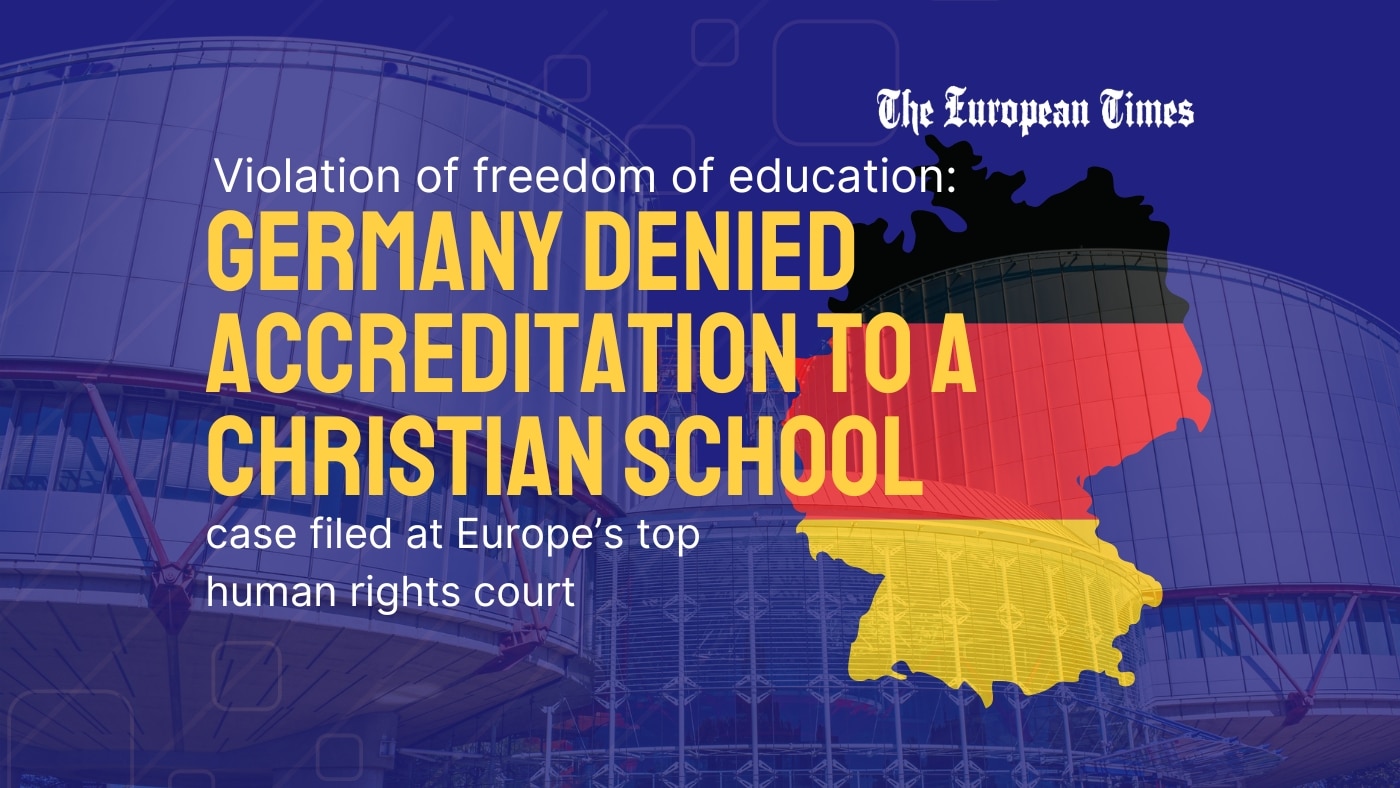Strasbourg – A Christian hybrid school provider based in Laichingen, Germany, is fighting the German state’s repressive educational system. After the first application in 2014, German authorities said that the Association for Decentralized Learning couldn’t give primary and secondary education, even though it met all of the state-mandated requirements and curricula. The Association’s school is based on a new and becoming more popular form of education that combines learning in school and at home.
On May 2, lawyers from ADF International, a human rights group, took the case to the European Court of Human Rights (ECtHR).
- German hybrid school—innovative in-class and at home learning model—takes challenge to European Court of Human Rights after accreditation denied
- Germany has one of the most restrictive educational systems worldwide; lower court cites lack of socialization for students
Dr. Felix Bollmann, the Director of European Advocacy for ADF International and the attorney who submitted the case with the ECtHR, stated the following:
“The right to education includes the right to embrace innovative approaches like hybrid schooling. By restricting this educational model, the state is violating the right of German citizens to pursue education that conforms with their convictions. When it comes to the requirement of physical presence, Germany has one of the most restrictive educational systems in the world. The fact that an innovative school based on Christian values has been denied recognition is a serious development worthy of scrutiny by the Court. The case brings to light the egregious issues with educational freedom in the country,”
The Association submitted its initial application for accreditation in 2014, but state educational authorities ignored it for three years. Due to the inaction, they filed a lawsuit in 2017, with the first court hearing not occurring until 2019, the appeal in 2021, and the third instance court in May 2022. In December 2022, the Supreme Court rejected the final domestic appeal..
Hybrid education, successful and popular, yet restricted
The Association for Decentralized Learning has effectively operated an independent hybrid school for the past nine years, combining in-class instruction with digital online lessons and independent study at home. The institution employs state-approved instructors and adheres to a predetermined curriculum. Students graduate using the same exams as those in public schools and sustain grade point averages above the national average.
Jonathan Erz, Head of the association for decentralized learning, stated:
“Children have a right to a first-class education. At our school, we can provide families with an education that meets their individual learning needs and allows students to flourish. It is our great hope that the Court will right this injustice and rule in favor of educational freedom, recognising that our school provide innovative and high-standard education through modern technology, individual student responsibility, and weekly attendance hours”.
The Association was unable to establish new institutions. Due to the hybrid nature of the school, the administrative courts acknowledged the satisfactory level of education but criticized the model on the grounds that students spend little time together during breaks and between sessions. According to domestic courts, this is a crucial educational component that hybrid institutions lack.
Germany’s educational restrictions violate international law and national law
Germany, with a ban on homeschooling and severe educational restrictions, is in violation of the right to educational freedom as enshrined in its own constitution and in international law. International law specifically recognizes the liberty of bodies, such as the Association, to establish and direct educational institutions without interference, subject to “the requirement that the education given in such institutions shall conform to such minimum standards as may be laid down by the State”. (International Covenant on Economic, Social and Cultural Rights, Article 13.4)
International Covenant on Economic, Social and Cultural Rights, Article 13.3 says that governments are obliged to respect:
“the liberty of parents … to choose for their children schools, other than those established by the public authorities, which conform to such minimum educational standards as may be laid down or approved by the State and to ensure the religious and moral education of their children in conformity with their own convictions”.
With regard to the law, Dr. Böllmann stated:
“It is established clearly in international law that parents are the first authority for the education of their children. What the German state is doing to undermine education is an overt violation of not only freedom of education, but also of parental rights. Moreover, distance learning during Covid-19 lockdowns demonstrates that a complete ban on independent and digitally supported learning is out of date”.
The German Basic Law (Article 7 of the Constitution) guarantees the right to establish private schools—however, the domestic courts’ interpretation render this right ineffective. ADF International lawyers argue that this, in turn, is a violation of the European Convention of Human Rights. “Time and again, the European Court of Human Rights has made it clear that the Convention rights must be practical and effective,” says the press statement of ADF International.













